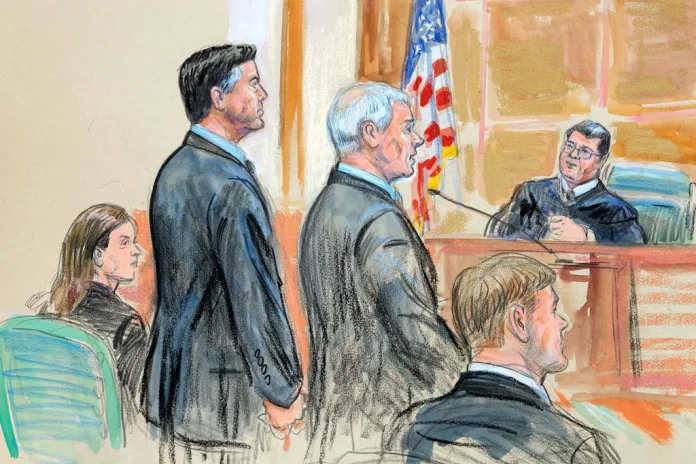


Federal prosecutors in the Eastern District of Virginia have been ordered to turn over all discovery evidence required under federal law to former FBI Director James Comey’s legal team by the end of the day on Monday, even as they ask the court to restrict what information Comey can access or keep related to the criminal case.
In an order issued Sunday, U.S. District Judge Michael S. Nachmanoff, an appointee of former President Joe Biden, directed the Justice Department to produce all discovery materials to Comey’s defense team by 5 p.m. Monday. The order came after Comey’s attorneys complained that prosecutors had yet to deliver critical evidence despite looming pretrial deadlines.
Recommended Stories
- How four courts ruled different ways on Trump's National Guard deployments
- Letitia James handled mortgage and bank fraud cases similar to the one she now faces
- Vance knocks Stephanopoulos for ending interview over Tom Homan's 'fake scandal'

Comey, who led the FBI from 2013 to 2017, faces two felony counts stemming from his September 2020 testimony before the Senate Judiciary Committee. One count accuses him of lying to Congress about authorizing another FBI official to speak anonymously to reporters, while the second alleges obstruction of a congressional proceeding. He appeared in federal court last week in Alexandria, Virginia, and pleaded not guilty.
The DOJ argued in its proposal for a protective order that much of the material at issue is “law enforcement sensitive” and should be shielded by the court. In filings over the weekend, prosecutors said the evidence includes internal communications marked “for official use only,” along with private emails and text messages.
They also noted that Comey has already made a public statement about his indictment, pointing to a video on his Substack in which the former director said his family was paying the “costs” of criticizing President Donald Trump and quoting a friend saying, “Fear is the tool of a tyrant.”
“Both the defendant and the government have an interest in a fair trial with impartial jurors making decisions based only on the evidence that is part of the record,” Assistant U.S. Attorneys N. Tyler Lemons and Gabriel Díaz wrote, warning that unrestricted access could risk public dissemination of sensitive materials.
The protective order proposed by the DOJ would prohibit Comey from retaining discovery on his own and limit access to his attorneys, their staff, and approved experts. It would further require that any “Protected Materials or information contained therein” not be used “for any purpose other than preparing to defend against the criminal charges in this matter.”
In a response to the government’s protective order, Comey’s counsel argued that their client has previously been entrusted with “some of the most sensitive and highly guarded information in the country.”
“To assert now, that he cannot be trusted with receiving discovery in his case controverts his long career of distinguished government service at the highest levels,” his attorneys added.
The dispute comes after Nachmanoff on Sunday denied the DOJ’s request to set two separate discovery deadlines, one seeking an Oct. 14 deadline for matters relating to motions challenging the appointment of U.S. Attorney Lindsey Halligan and alleging vindictive or selective prosecution, and a second on Oct. 20 for all other materials.
Nachmanoff cautioned prosecutors that discovery may not be withheld pending agreement on those terms. He warned that if parties fail to agree on a protective order by 5 p.m. Monday, he will “promptly set a hearing to resolve any such dispute.”
JIM JORDAN DEFENDS DOJ’S COMEY INDICTMENT AS ‘ENTIRELY APPROPRIATE’
“Under no circumstance shall the failure to reach agreement … justify withholding prompt disclosure of discovery to defense counsel for review,” Nachmanoff wrote Sunday.
Unless delayed by further discovery disputes, Comey’s trial is scheduled to begin on Jan. 5, 2026.
